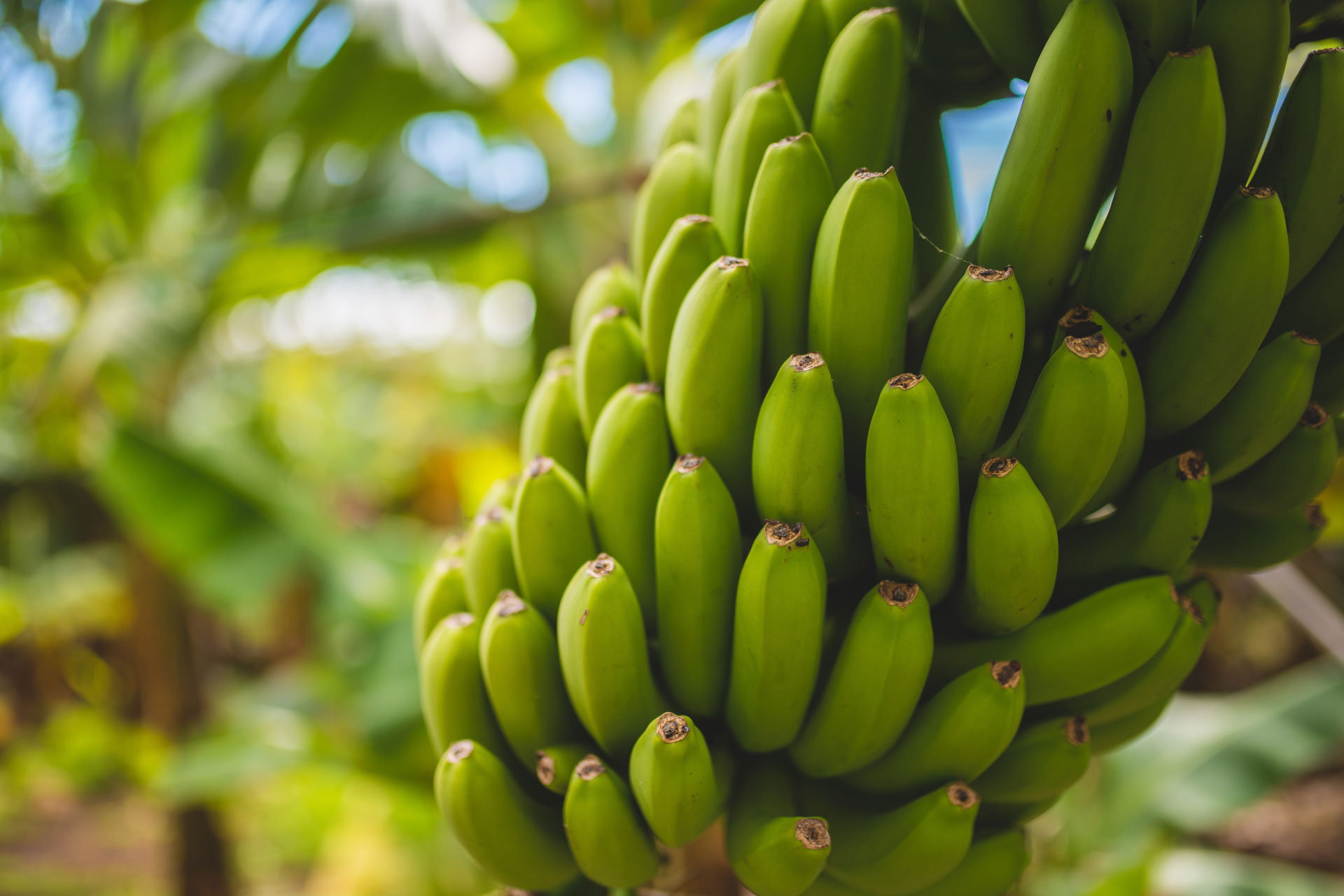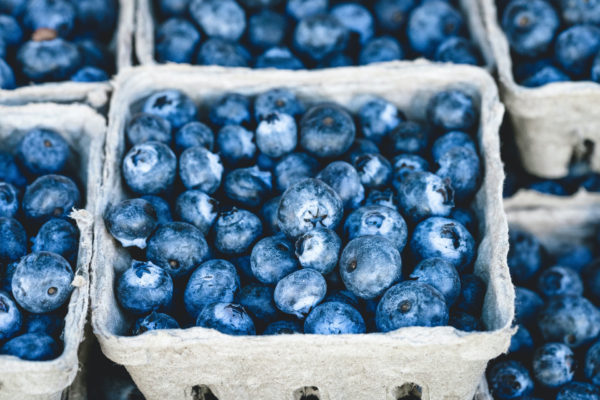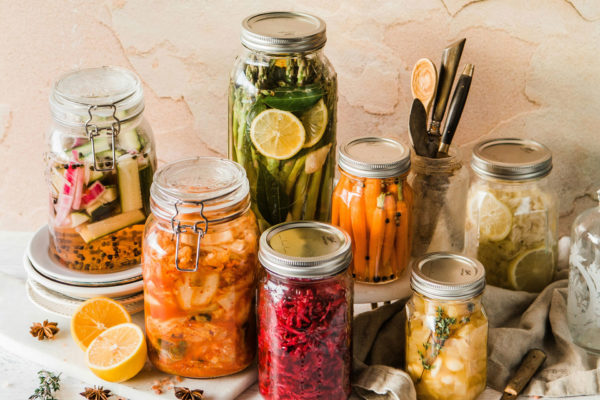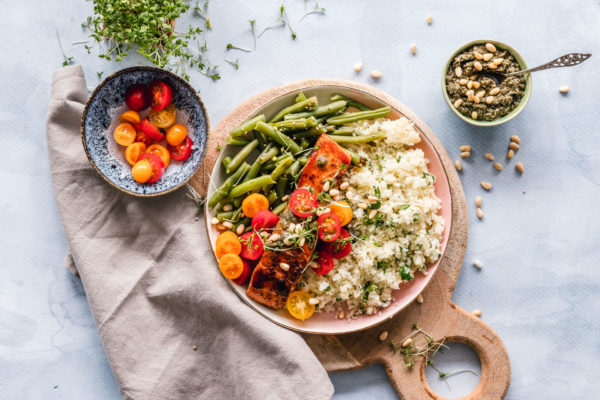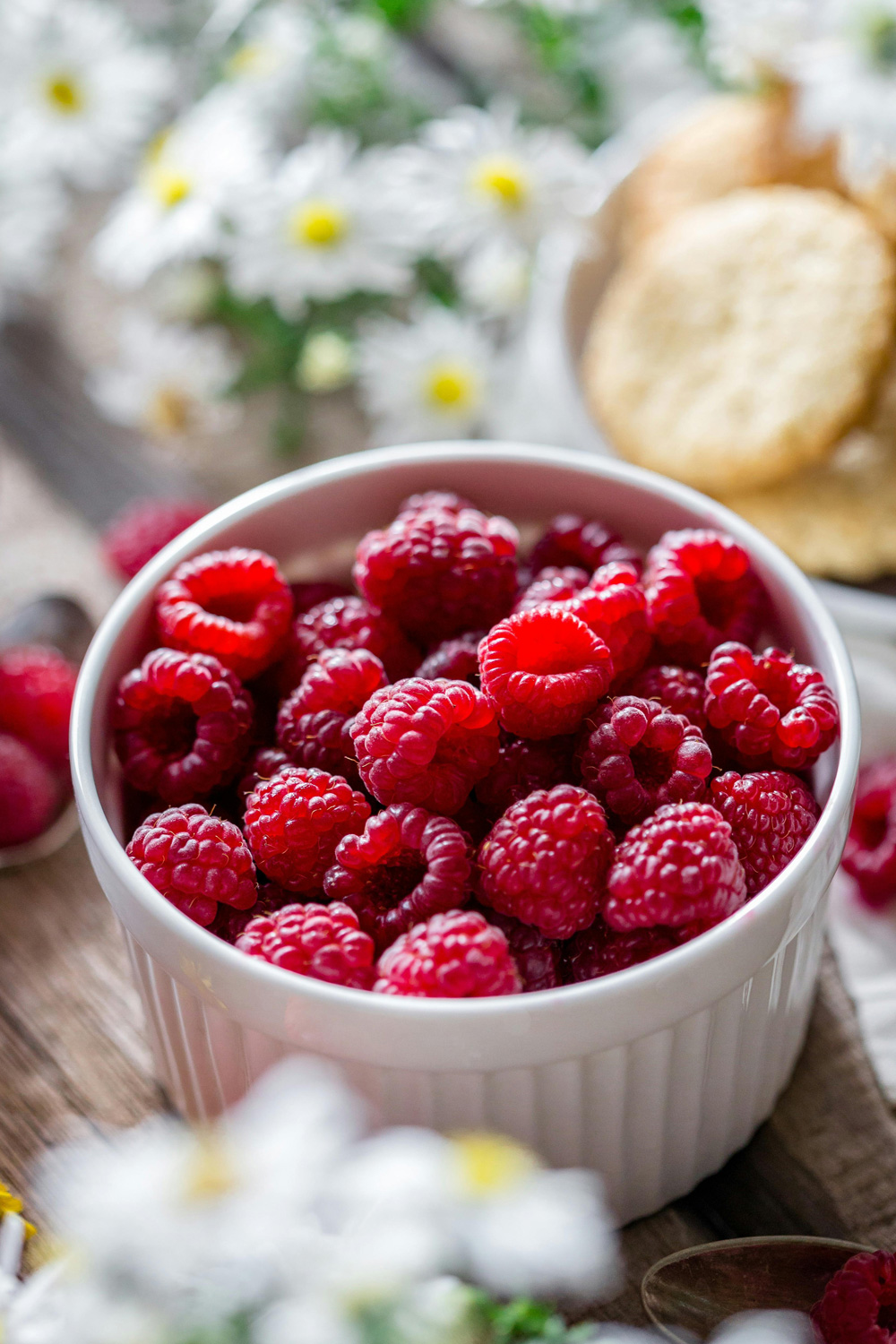
Which Foods Can Boost Mood?
By
11 months ago
Uplifting nutrients to add to your diet this January
January is a notoriously depressing month: it’s cold and dark, all the Christmas fun feels like a distant memory, and everyone is doing Dry January. But did you know it’s scientifically possible to boost your mood through your plate? Certain vitamins and minerals are known for naturally increasing serotonin levels, while fermented foods benefit the gut microbiome – which affects how we feel emotionally as well as physically. So what should we be eating this winter to beat the blues? Here registered dietician Lola Biggs shares the top 10 mood-boosting foods.
10 Mood-Boosting Foods To Beat The Winter Blues
Avocado
Packed with healthy fats and fibre, avocados are something of a superfood when it comes to both heart and gut health. But they’re also a mood-boosting food, thanks to the high content of vitamin E, B6, magnesium, potassium and folate. ‘These all play various roles in mood regulation and brain function,’ says Lola. ‘Low in sugar, they keep your blood sugar in check and your mood stable.’
Bananas
Lola describes bananas as ‘the perfect dopamine snack’. They contain both vitamin B6 and tryptophan, which help the body produce serotonin, as well as increase the body’s production of GABA, a chemical that calms the nervous system.
Berries
Loaded with antioxidants, vitamin C and prebiotics, berries offer a wealth of benefits – and they may have mood-boosting properties too. As Lola explains, berries contain ‘nutrients that can help combat oxidative stress, which has been linked to mood disorders and supporting brain health.’ But which berry is superior when it comes to mood-boosting foods? ‘Blueberries, the superfood of the berry world, are particularly beneficial as they could play a role in helping manage anxiety and stress,’ says Lola. This has been proven by science: a study from the University of Reading found young people who drank a wild blueberry-infused drink had a significant increase in positive mood.
Walnuts
Nutritionists often recommend nuts as a healthy mid-afternoon snack, but if you’re feeling a little blue, walnuts are your best bet. ‘Super tasty and healthy, these are crammed full of magnesium and tryptophan, both of which have been linked to lifting mood levels, and omega-3 fatty acids,’ explains Lola. ‘Omega-3s are a type of fat that your body can’t make but can help reduce inflammation and oxidative stress in the brain. Munching a few of these every day may reduce low moods.’

Getty Images
Eggs
It’s no coincidence that many of us feel happier in the summer. Vitamin D, known as the sunshine vitamin, is famous for improving mood, yet one in six UK adults are deficient, particularly during the winter months when sunny days are few and far between. That’s why nutritionists often recommend upping your intake of vitamin D-rich foods around this time of year. One of the best sources? Eggs. ‘The nutrients in eggs help the body to produce dopamine and serotonin, both known to regulate and boost moods,’ Lola tells us.
Dark chocolate
There’s nothing like a bit of chocolate to brighten up a dull day. It’s not just the placebo effect either: dark chocolate contains flavanols, which can stimulate the release of endorphins. ‘Always choose a good quality, organic variety with 85 percent or more cocoa solids and lower sugar content,’ Lola advises.
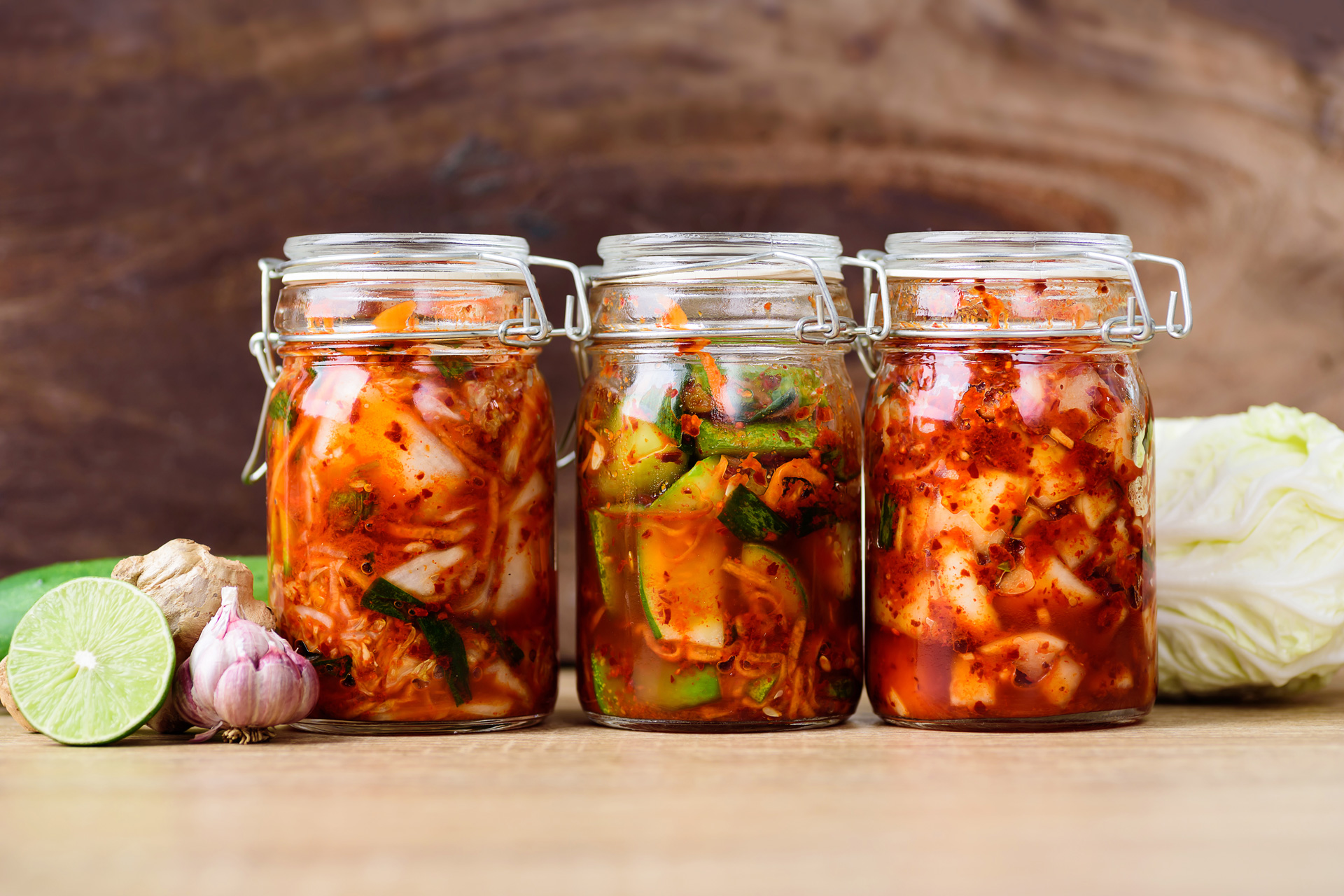
Getty Images
Fermented foods
The gut-brain connection has been widely documented in scientific studies – and there’s growing research suggesting fermented foods may even alleviate symptoms of depression and anxiety. ‘From kombucha, kefir, kimchi and yogurt, fermented foods can influence serotonin, our feel-good hormone but also improve gut health,’ says Lola. ‘There’s increasing evidence that your gut health and mental health are closely connected as eating fermented foods can help increase the good bacteria in your gut, which can have a positive influence on your mood.’
Spinach and kale
Studies have shown low levels of B vitamins can lead to depression, so it’s important to keep our intake high, says Lola – particularly during the winter months. Dark leafy greens such as spinach and kale are rich in B vitamins, including folate – plus they contain iron, which can help maintain energy levels, and magnesium, which is associated with regulating stress. ‘Throw a handful of these into your stir fry, soup, salad, or omelette to keep your mood levels up,’ suggests Lola.
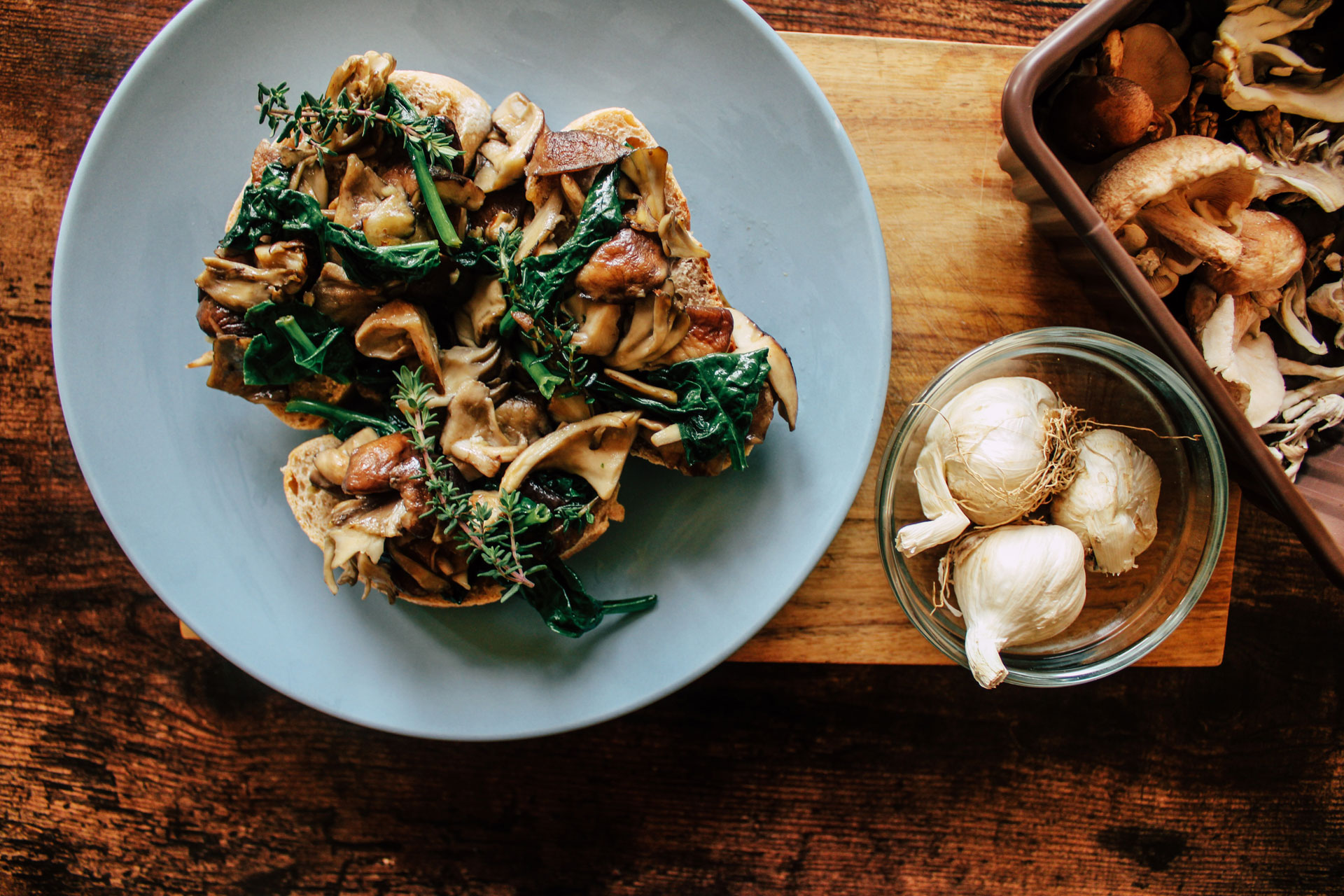
Unsplash
Mushrooms
The mushroom hype is going nowhere in 2025, and while there’s lots of talk about the functional kind right now, your classic portobello, chanterelle and shiitake varieties are packed with good stuff too. As Lola points out, mushrooms are ‘one of the few natural sources of vitamin D’ and ‘packed full of antioxidants, B vitamins and fibre, all of which can support healthy moods.’ She adds: ‘antioxidant ergothioneine, found in mushrooms, may lower oxidative stress and help have a more positive effect on our mood.’
Turmeric
It’s a staple in many curries, soups and smoothies, but turmeric does more than add flavour. The spice has anti-inflammatory properties, and there’s some evidence to suggest its key compound, circumin, may benefit the brain. A study published in the American Journal of Geriatric Psychiatry, for instance, found a twice-daily dose of curcumin can boost mood in older adults, as well as improve memory.
Lola is a dietician for natural health supplement brand Together Health

